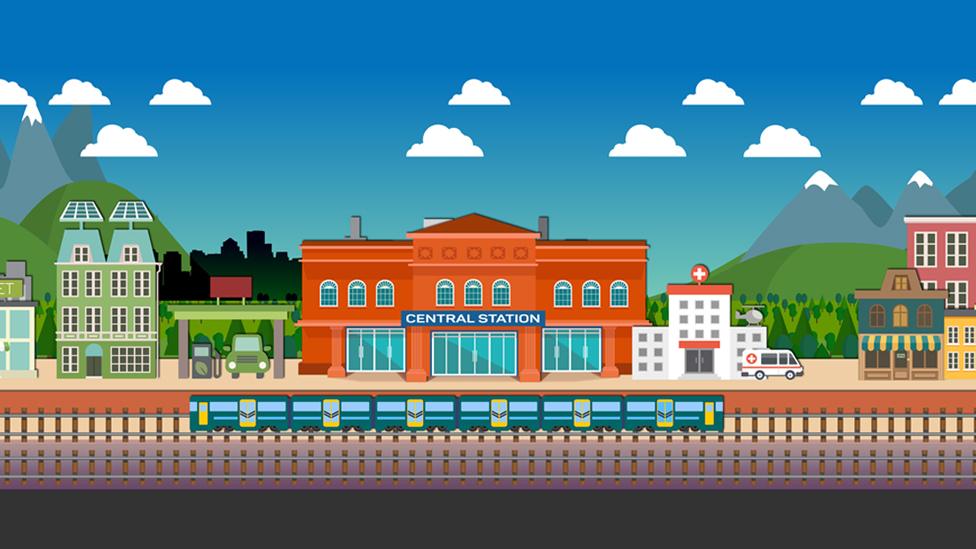Arriva Trains Wales reports 'huge rise' in commuters
- Published
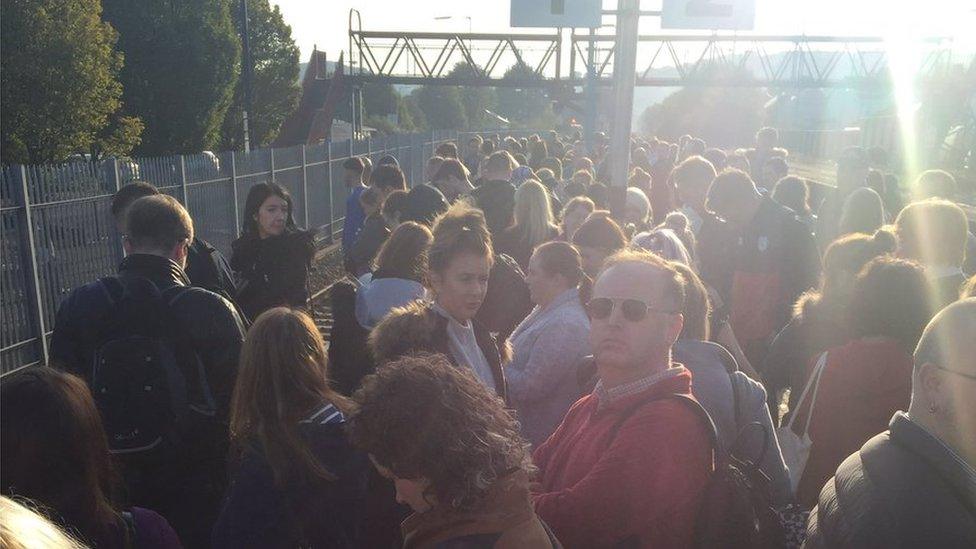
Caerphilly commuters packed the platform on Tuesday morning
Arriva Trains Wales has said it is committed to improving its services as figures showed a "huge rise" in passenger numbers.
The rail operator reported a quarter of a million extra commuters in south Wales since 2013.
But it has come at the price of overcrowding and delays.
South Wales commuters described services as "absolutely horrendous" and "utterly shambolic" on social media.
Joe Hoppe filmed one journey and said passengers were "packed in like cattle"
The independent watchdog Transport Focus, welcomed that more people were taking the train, but said "overcrowding has become a daily struggle" for some commuters in Wales.
Its chief executive Anthony Smith, said: "Arriva Train Wales passengers tell us from our research that their top priority is improving the number of seats available.
"Significant, sustained, long-term investment must continue to not only reduce overcrowding, but to ensure that it doesn't get worse if passenger numbers continue to increase."
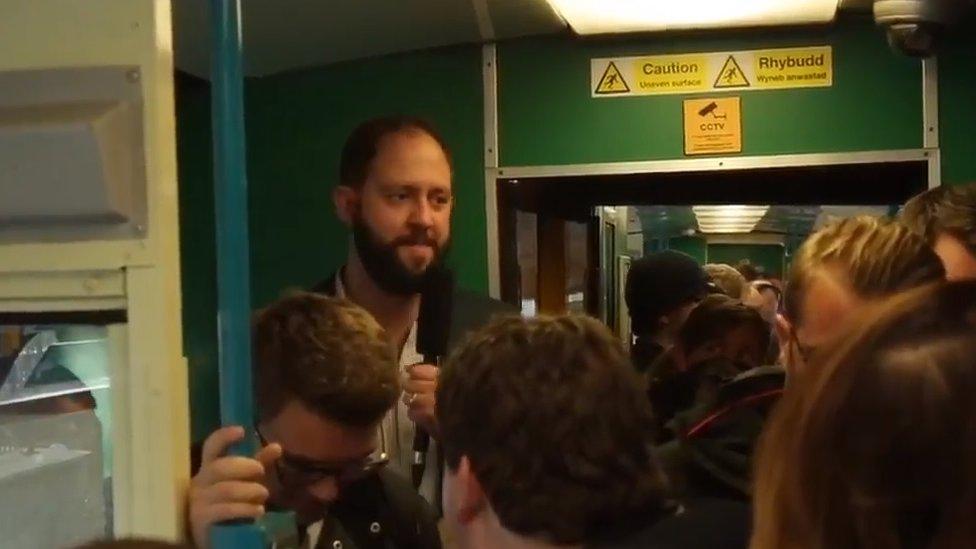
Stuart Thomas filmed his daily commute from Mountain Ash to Cardiff Central
Stuart Thomas, 38, travels from Mountain Ash, Rhondda Cynon Taff to Cardiff Central. He reviews gadgets online for a living and recently turned his attention to his daily commute.
He said "overcrowding, hot conditions, late trains and drunk people are a regular occurrence".
When filming his commute for a review this week, he witnessed a person faint on the packed train, which resulted in a delay as they waited for an ambulance.
He said there had been a great reaction to his review.
"It's obvious most people in Wales feel the same about Arriva Trains Wales," he said.
Mr Thomas feared the problem would only be exacerbated when the BBC opens its new headquarters in Cardiff, with more and more people using Cardiff Central.
"It's just not going to cope."
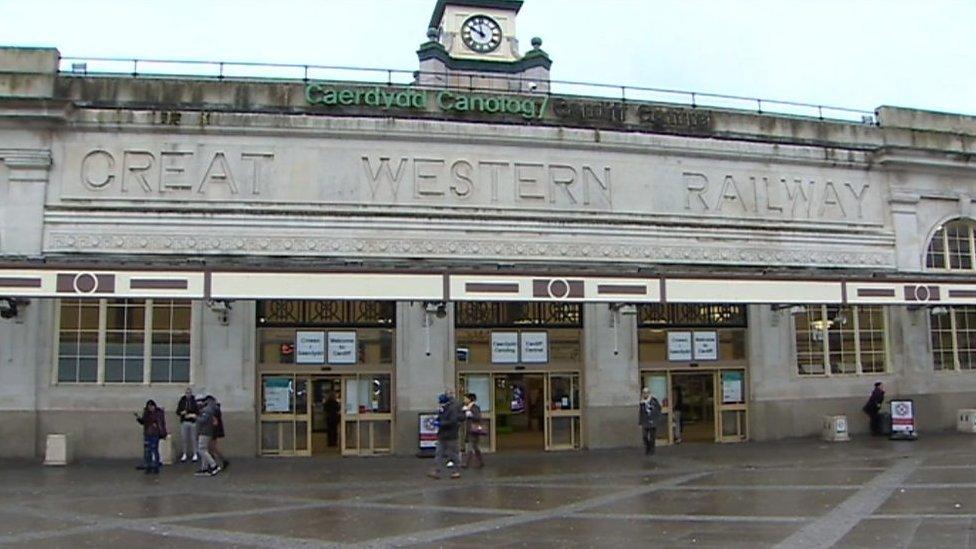
Cardiff Central station
Joe Hoppe commuted on the Ebbw Vale line from Pye Corner to Cardiff Central to go to university and described the service as "absolutely dreadful".
He said he never had a seat and in a matter of months was turned away five times because the trains were too full.
"If I was was going to work instead of university I would have been fired."
He said he and eight other people were usually packed into the door area, and he would have to pull people in to prevent them from getting trapped in the doors.
"I had enough room to breathe, and that was about it."
Mr Hoppe said "it is only a matter of time" before there was a serious accident due to overcrowding.
"The result would be catastrophic as we're all packed in there like cattle," he said.
Now a graduate, Mr Hoppe said his experiences had influenced where he now lives and works. He said it was easier to get a flat in Cardiff and drive to work than face the trains again.
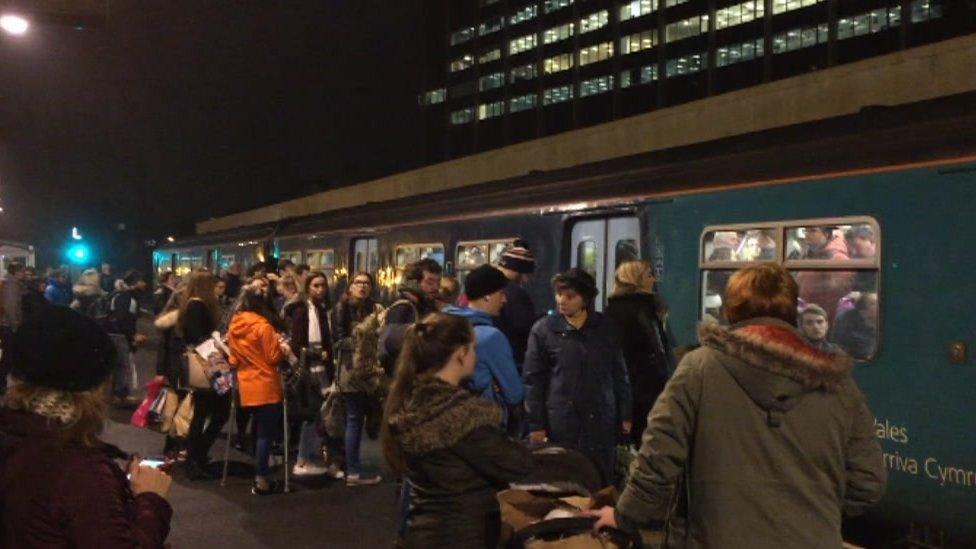
Passengers wait on a crowded platform
Arriva published its commuter figures on Friday to coincide with National Car Free Day.
It said passenger journeys have risen from 18m in 2003 when it started the franchise to more than 30m a year in 2017.
The increase in footfall was particularly evident at commuter stations in:
Gowerton, Swansea, up 24%
Llanharan, Rhondda Cynon Taff, up 24%
Pontyclun, Rhondda Cynon Taff, up 15%
Pyle, Bridgend county, up 12%
Caerphilly, Caerphilly county, up 9.1%
Cwmbran, Torfaen county, up 6.5%
Arriva said it had completed a number of projects to improve its railways and public transport facilities, including the modernisation of part of Cardiff Central station and the Cardiff valleys railway modernisation scheme.
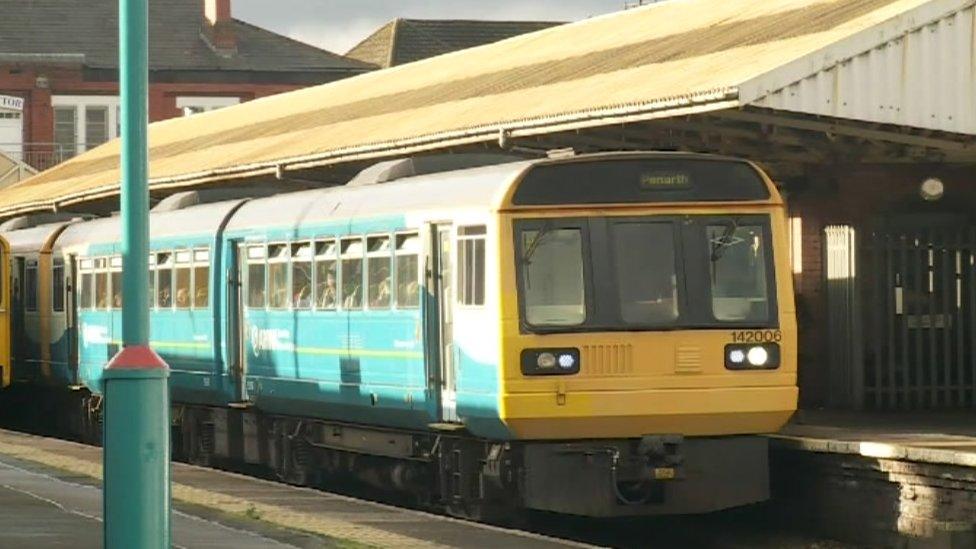
Asked about the overcrowding, Lynne Milligan, customer services director for Arriva Trains Wales, said: "The franchise was written as a zero growth one, meaning those setting the terms did not expect the exceptional rise in passenger numbers.
"As such we've struggled to get new trains over the years," she said.
In May, Arriva introduced a new timetable to "get more out of our 127 trains" and "gave 600 extra seats into Cardiff every morning".
She added incidents like Storm Aileen "can really set us back".
"We also had Network Rail engineering overrun on Monday night into Tuesday morning which left 10 trains unable to leave the Rhymney depot on top of another four of ours which needed repair," she said.
This led to Arriva having to do "short forming", which means a train that would usually run as four carriages would go down to two so they could be run elsewhere.
This, Ms Milligan admitted, "does lead to more uncomfortable conditions".
She confirmed Arriva was getting five new four-carriage trains next year "which we hope will make a big difference".
- Published30 March 2017
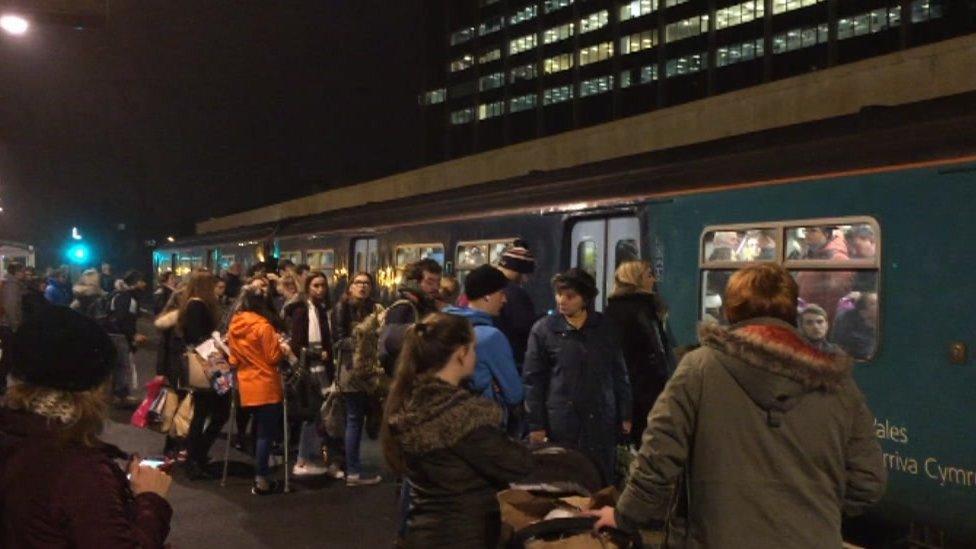
- Published24 January 2017
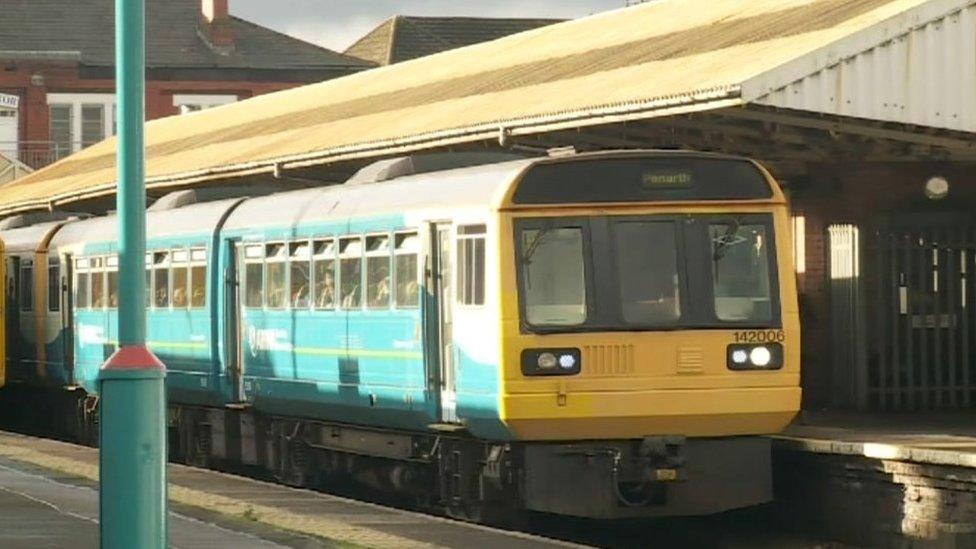
- Published24 January 2017
